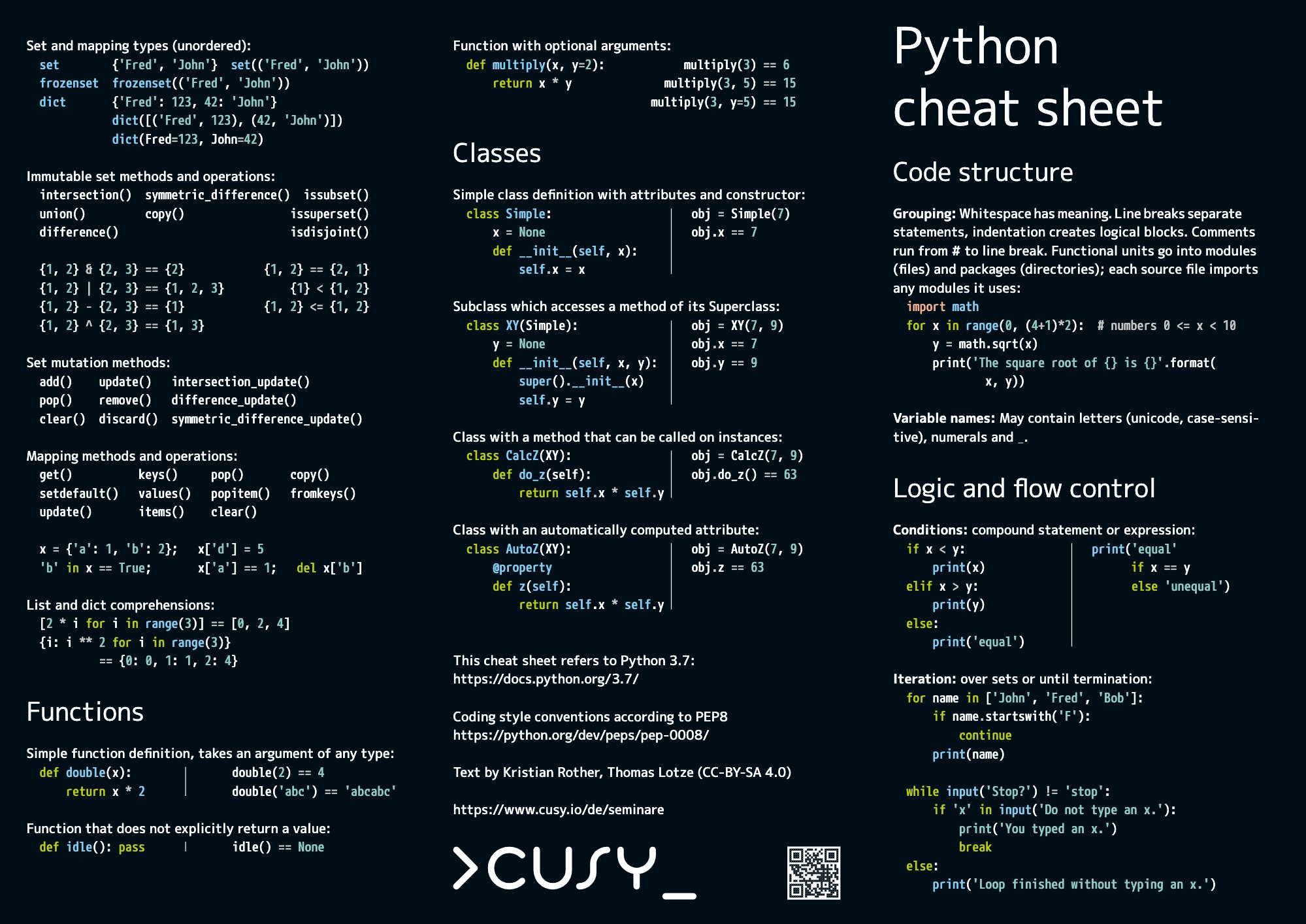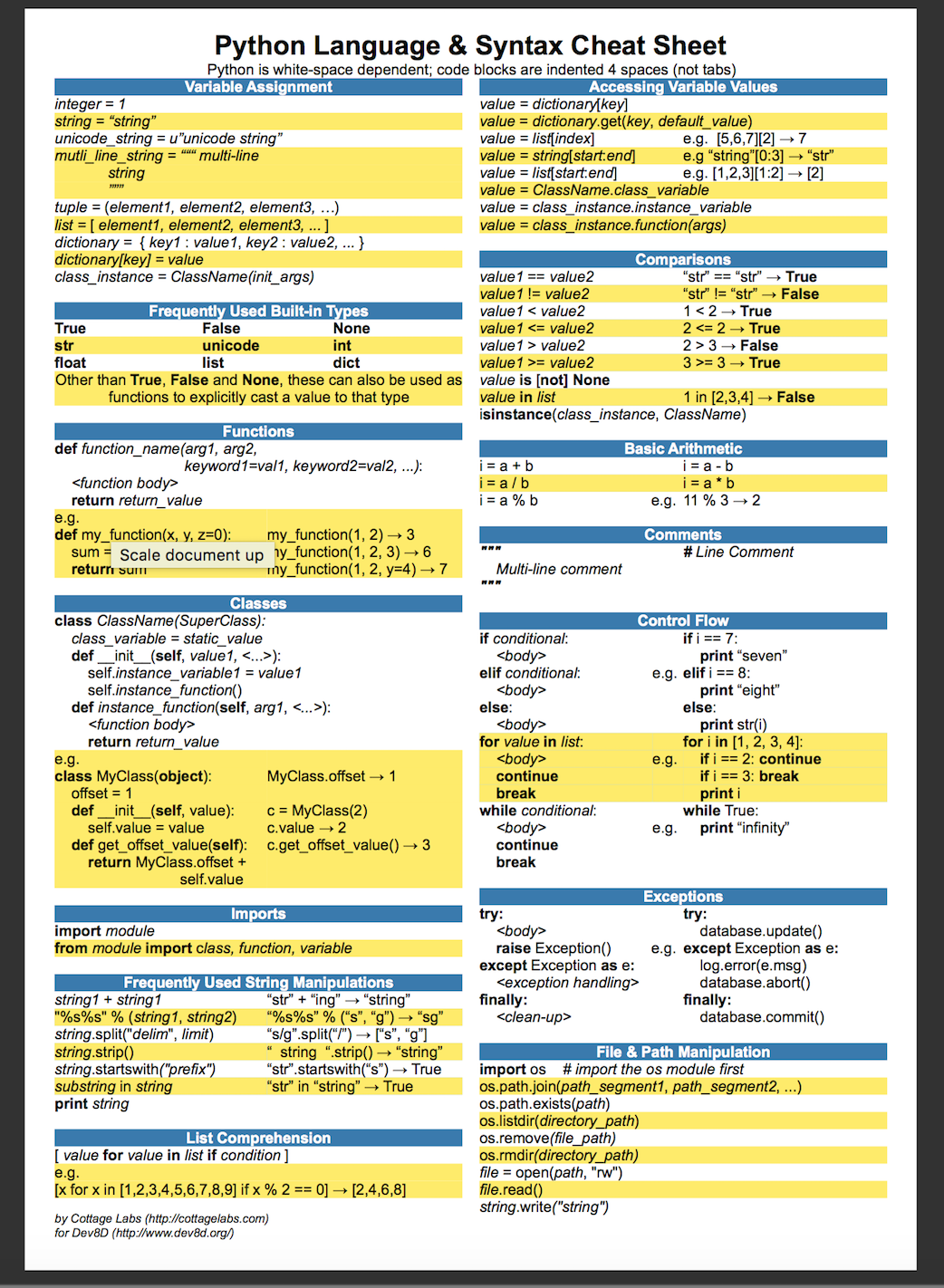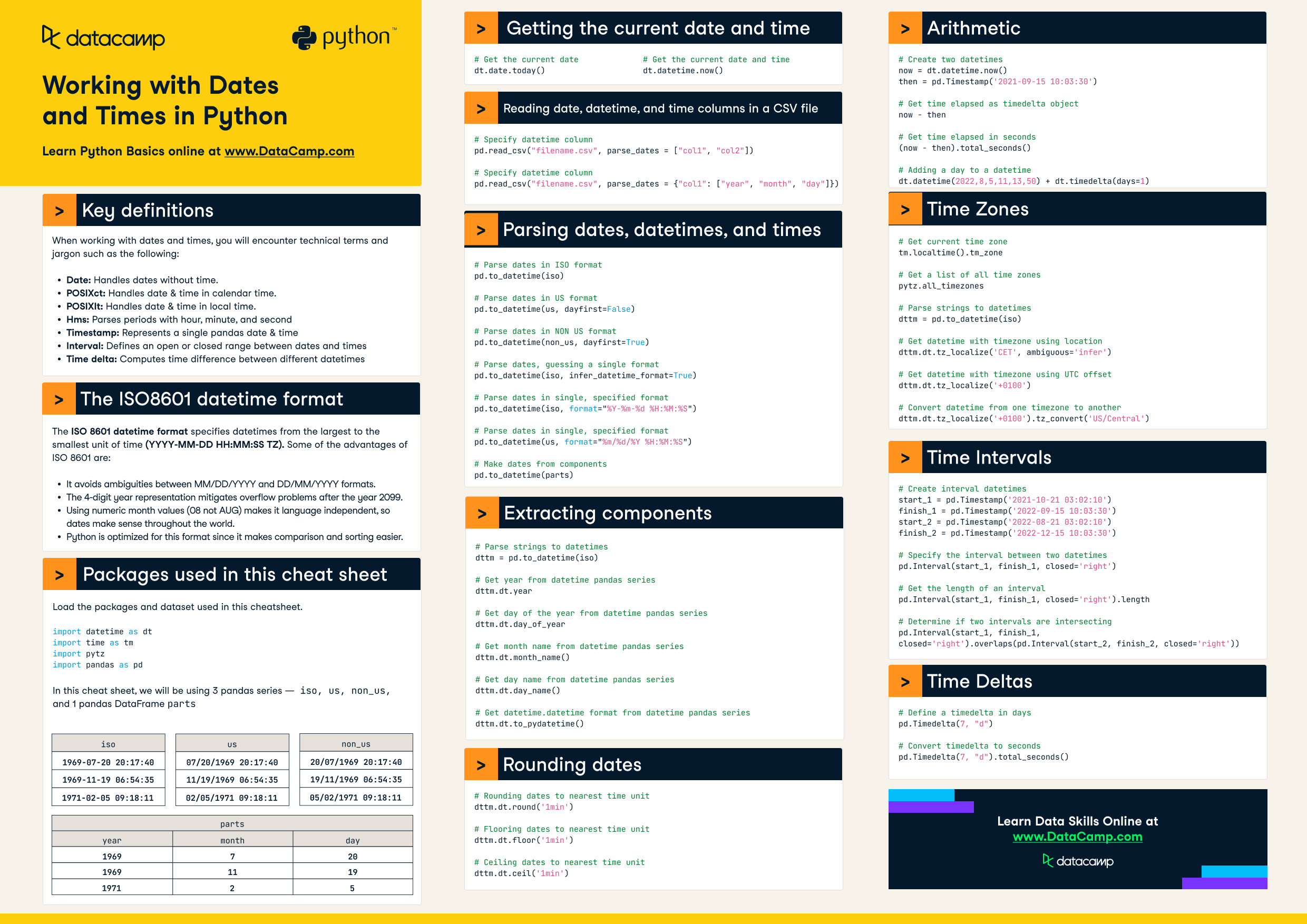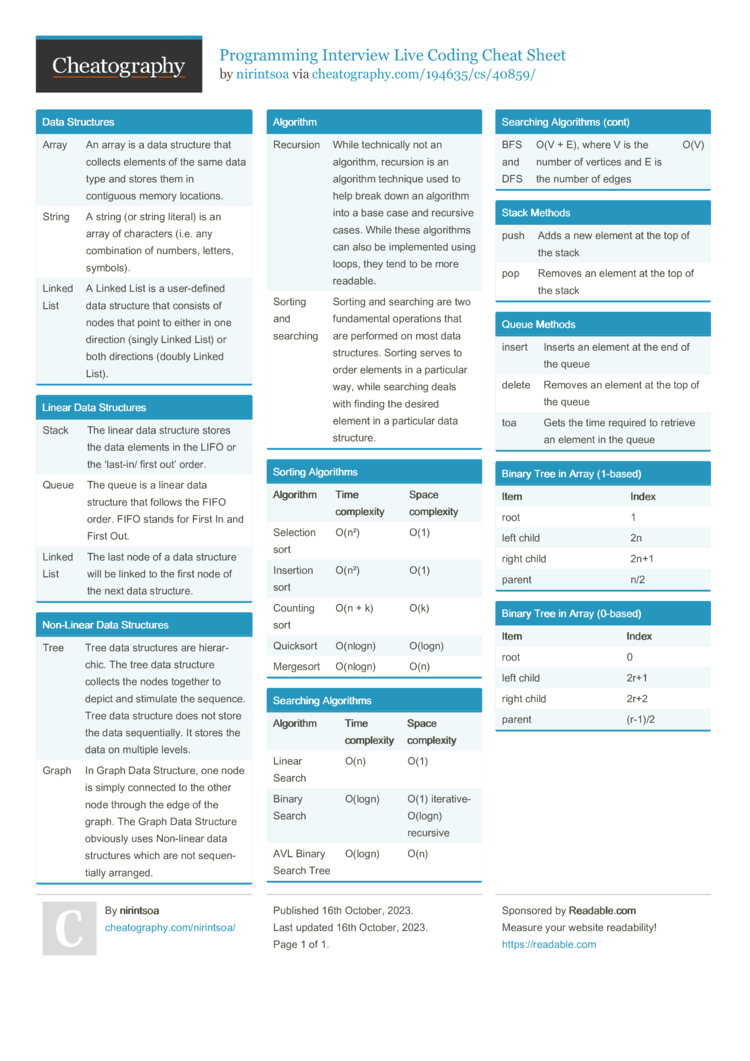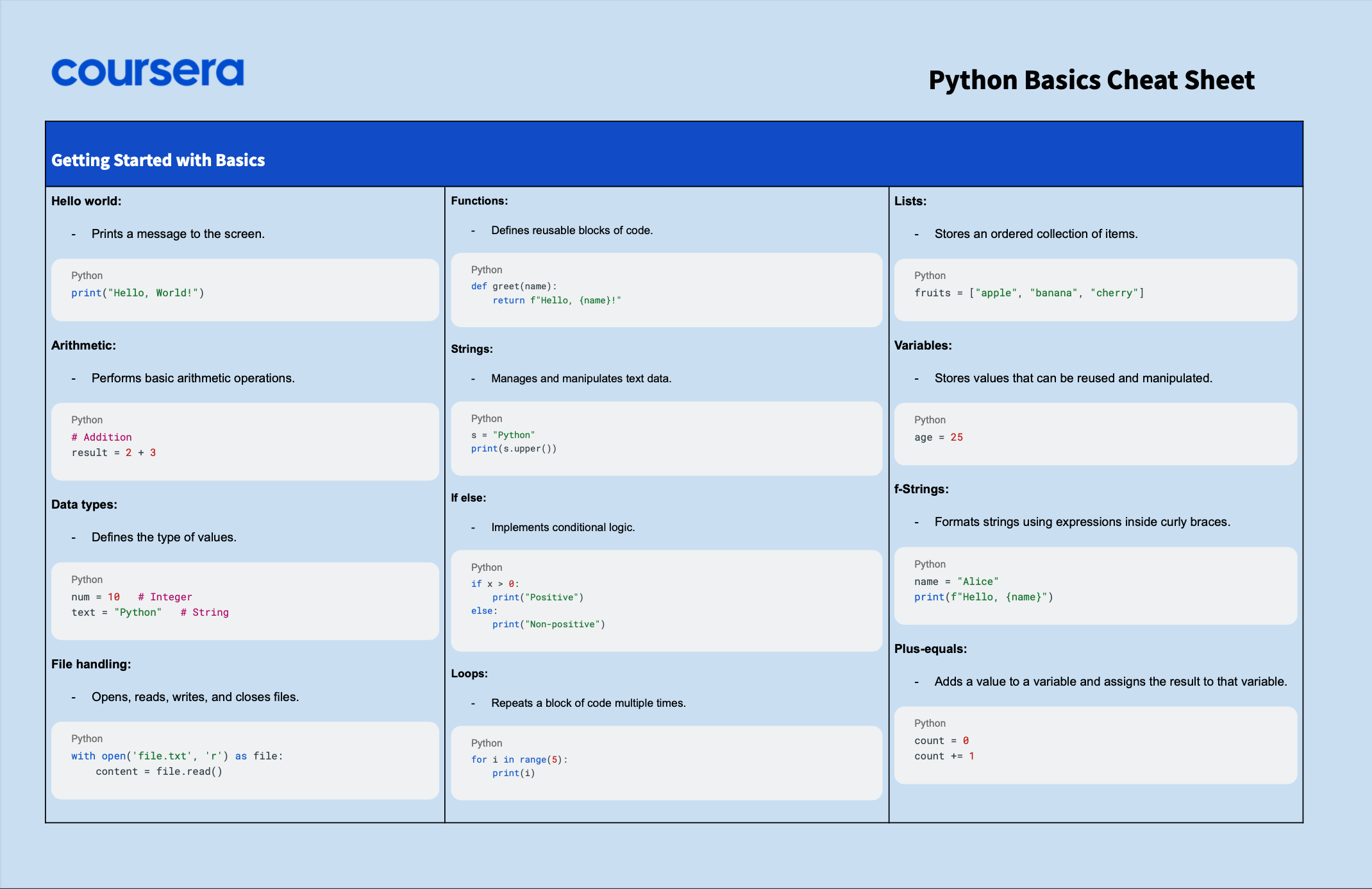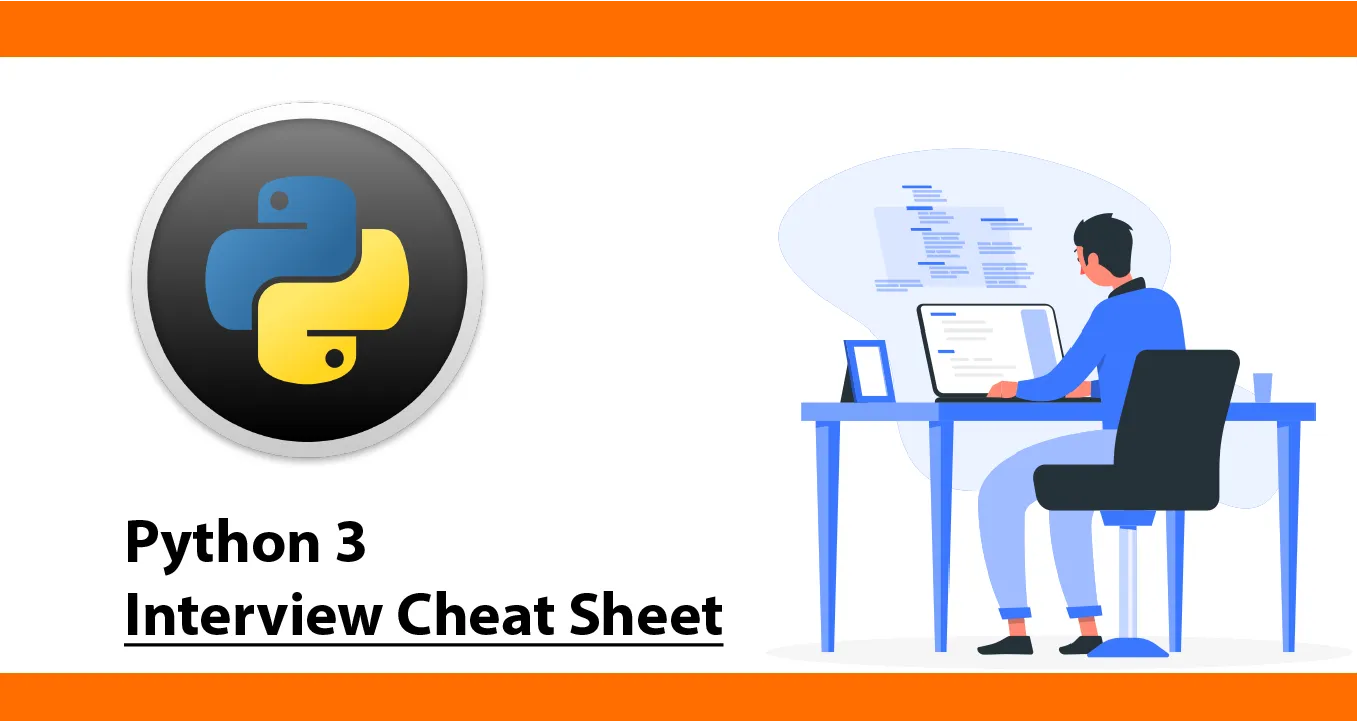Python Cheat Sheet For Coding Interview
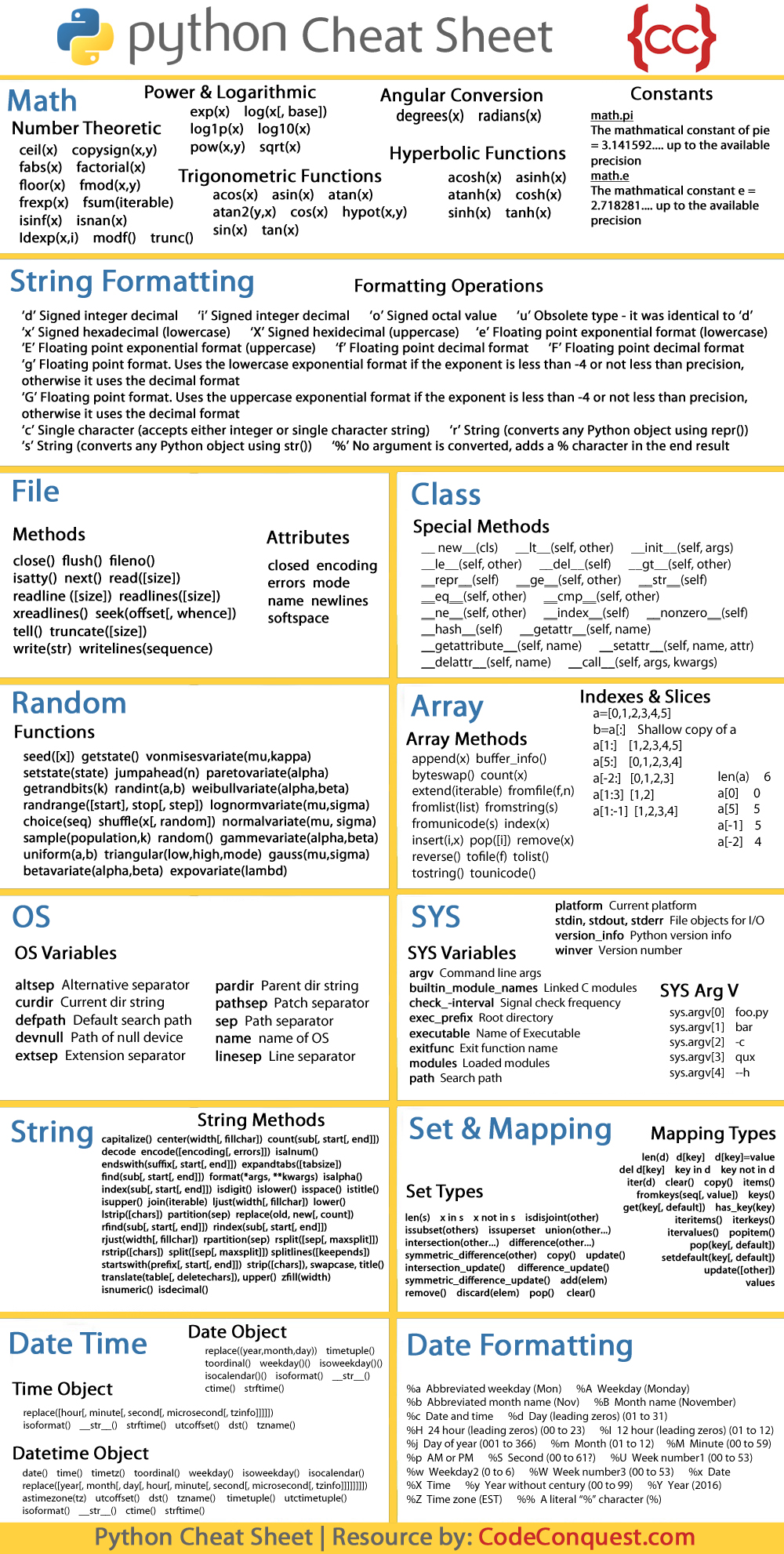
The high-stakes coding interview. For many aspiring software engineers, it represents the ultimate hurdle to landing their dream job. Faced with intense pressure and complex algorithmic challenges, candidates often find themselves wishing for a lifeline – a concise, readily accessible guide to essential Python concepts.
This article provides exactly that: a targeted Python cheat sheet, distilled from industry best practices and commonly assessed areas, designed to help candidates navigate the treacherous waters of technical interviews. We'll delve into crucial data structures, algorithms, and language-specific features, offering a practical toolkit to boost confidence and performance. The goal is not rote memorization, but rather a deep understanding of the core principles enabling efficient problem-solving under pressure.
Data Structures: The Foundation
Understanding fundamental data structures is paramount. Mastery of these concepts demonstrates a solid grasp of data organization and manipulation, critical for efficient algorithm design. Knowing when to use which data structure is also very important.
Lists and Tuples
Lists are mutable, ordered sequences, ideal for dynamic collections. They are denoted by square brackets: `my_list = [1, 2, 3]`. Tuples, conversely, are immutable, represented by parentheses: `my_tuple = (1, 2, 3)`. Immutability makes tuples useful for data integrity and as keys in dictionaries.
Dictionaries
Dictionaries are key-value pairs, allowing for efficient data retrieval using keys. Defined using curly braces, dictionaries provide fast lookups: `my_dict = {'name': 'Alice', 'age': 30}`. Understanding dictionary comprehensions can be very powerful in an interview.
Sets
Sets are unordered collections of unique elements. They are useful for removing duplicates and performing set operations: `my_set = {1, 2, 3}`. Sets offer efficient membership testing.
Algorithms: Core Problem-Solving Techniques
Algorithms form the backbone of coding solutions. The ability to implement and analyze common algorithms is a key indicator of a candidate's problem-solving capabilities. Understanding time and space complexity is crucial.
Searching Algorithms
Linear search iterates through each element until the target is found. Binary search, applicable to sorted arrays, offers logarithmic time complexity by repeatedly dividing the search interval in half. Candidates should understand the trade-offs between these approaches.
Sorting Algorithms
Bubble sort, insertion sort, and selection sort are simple but inefficient for large datasets. Merge sort and quicksort offer better average-case performance with O(n log n) time complexity. The Python `sorted()` function provides an optimized sorting implementation.
Recursion
Recursion involves defining a function that calls itself. It's often used for problems that can be broken down into smaller, self-similar subproblems. Ensure a base case to prevent infinite recursion.
Python-Specific Features: Leveraging the Language
Demonstrating proficiency in Python's unique features showcases a deeper understanding of the language. This is a great way to stand out in the interview process. This is where you can really show off your knowledge of the language.
List Comprehensions
List comprehensions provide a concise way to create lists based on existing iterables. They offer a more readable alternative to traditional loops. They can be used to filter and modify data.
Lambda Functions
Lambda functions are anonymous, single-expression functions. They are useful for short, simple operations. They are often used in conjunction with functions like `map()` and `filter()`.
Generators
Generators are functions that produce a sequence of values using the `yield` keyword. They generate values on demand, saving memory compared to creating a large list. Understanding generator expressions can be very powerful.
Tips for Interview Success
Beyond technical knowledge, successful coding interviews require effective communication and problem-solving strategies. Practice is essential for building confidence and fluency. Thinking out loud can also be beneficial.
Clearly articulate your thought process to the interviewer. Explain your approach, assumptions, and any trade-offs you're making. Don't be afraid to ask clarifying questions.
Test your code thoroughly with various inputs. Consider edge cases and boundary conditions. Debug your code systematically, explaining your steps to the interviewer.
The Python documentation is your friend. Don't hesitate to refer to it during practice. Familiarize yourself with common modules and functions.
Conclusion: Continuous Learning
Mastering the Python cheat sheet is only the first step. The world of software engineering is constantly evolving. Continuously expanding your knowledge and skills is essential for long-term success.
Stay updated with the latest trends and technologies. Practice coding challenges regularly. Contributing to open-source projects can be a great way to learn and grow. The key to excelling in coding interviews, and in the field of software engineering, is a commitment to lifelong learning.
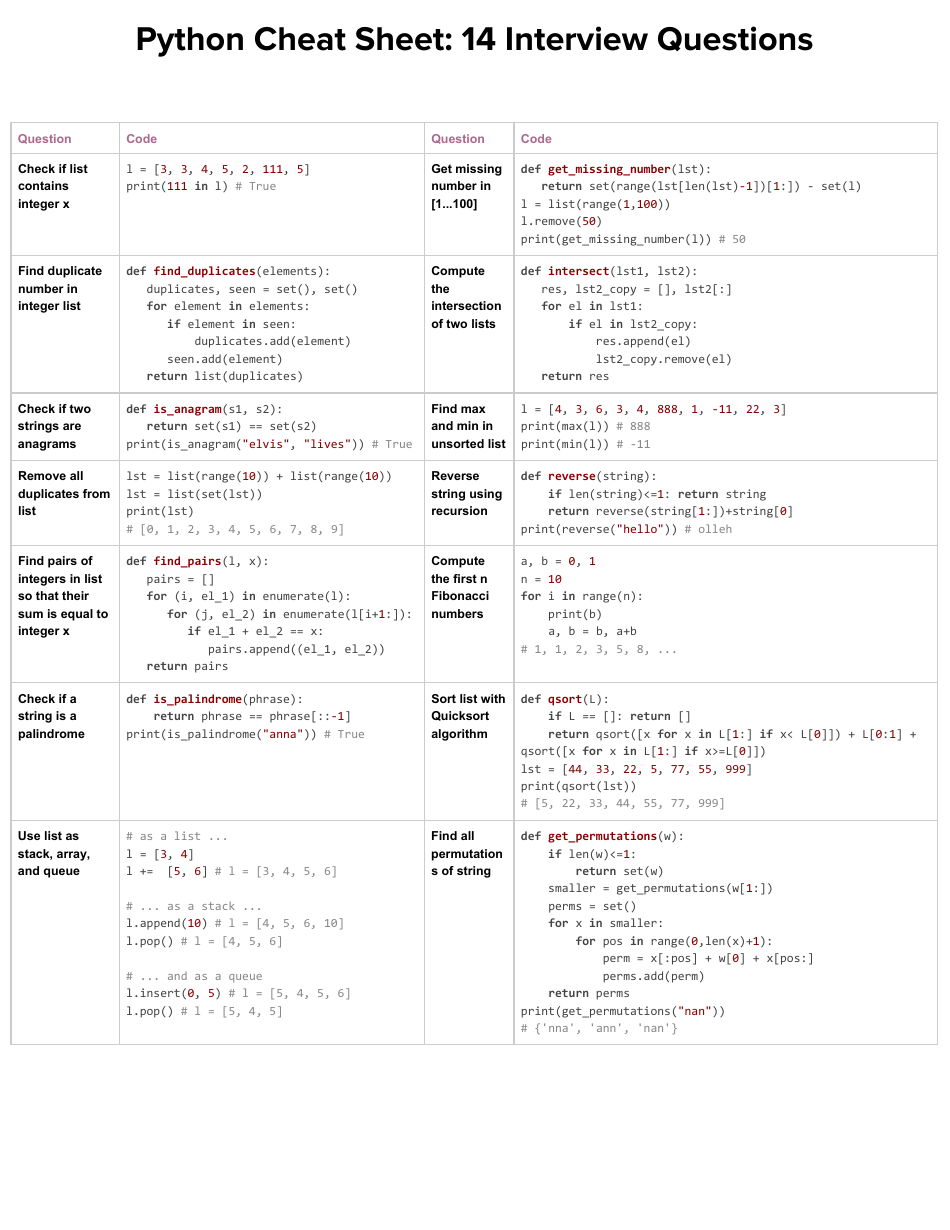
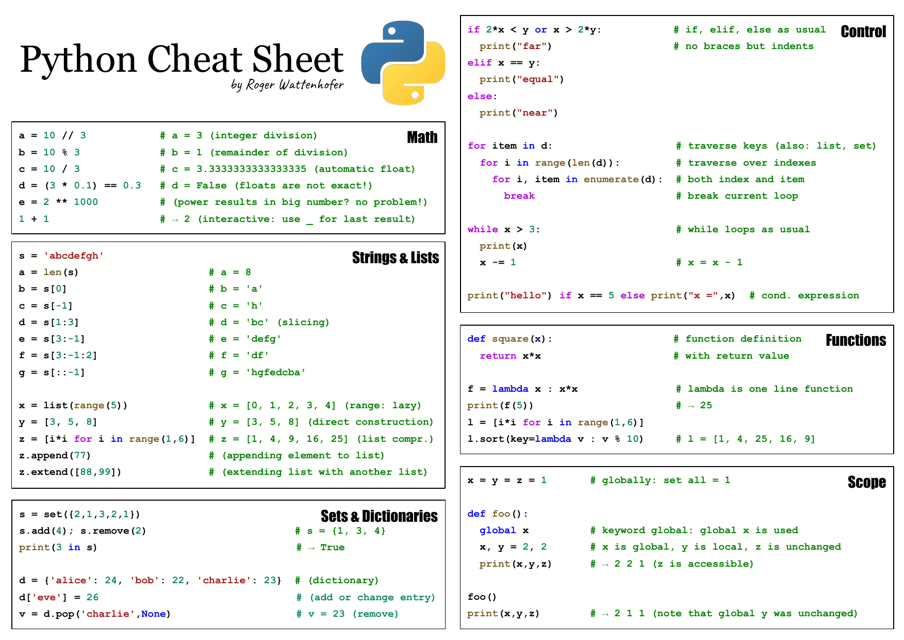
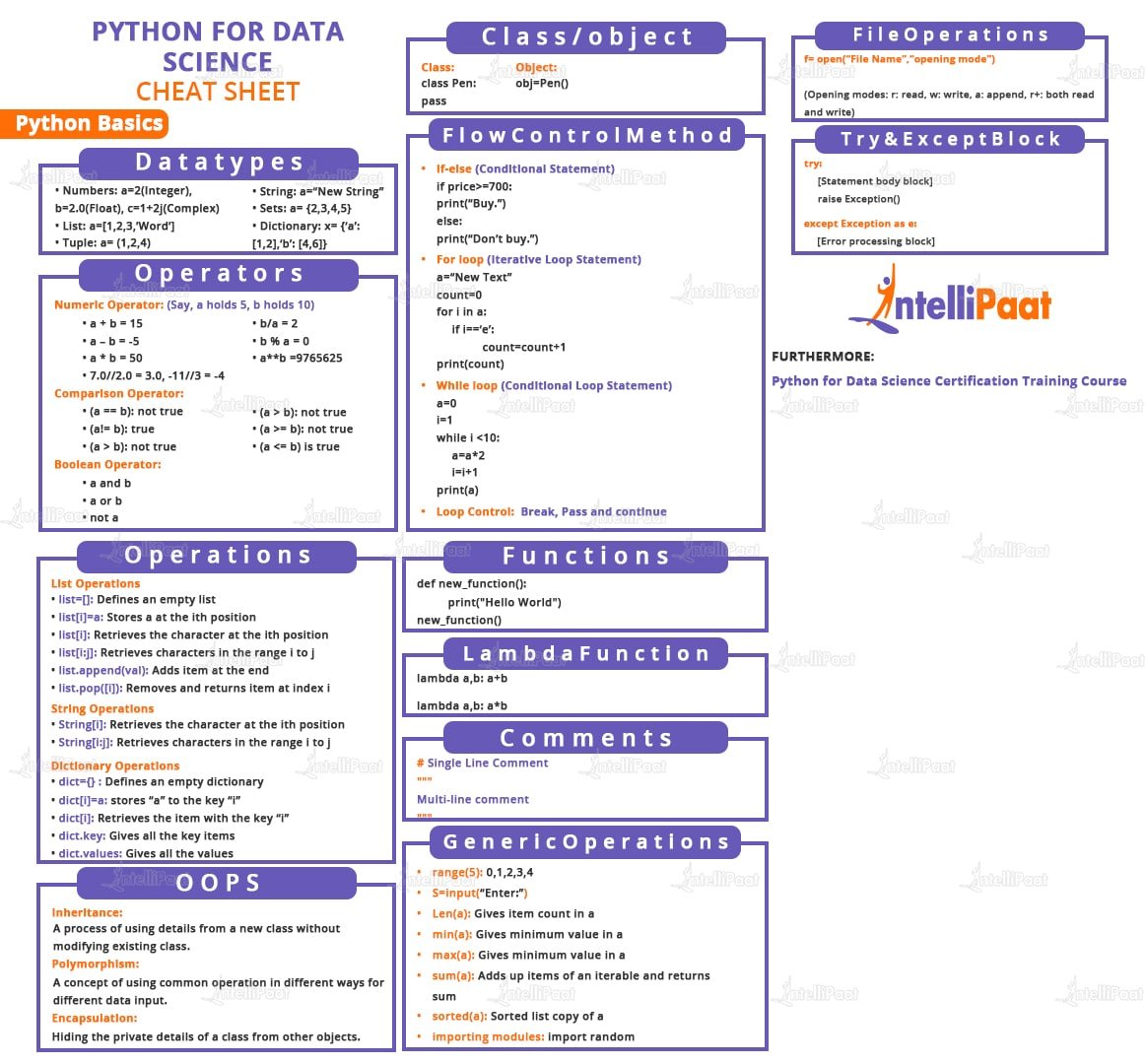


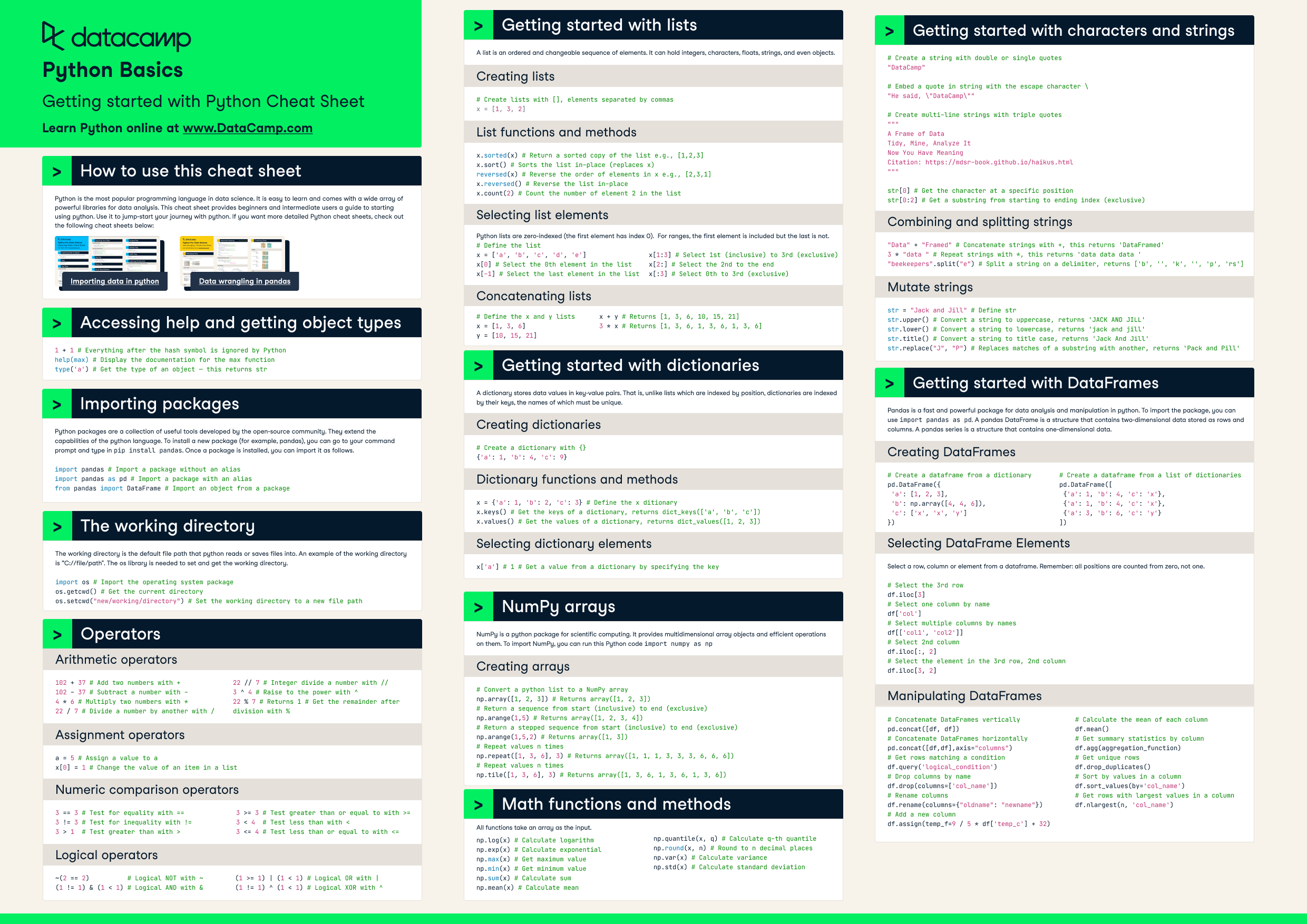



![Python Cheat Sheet For Coding Interview Python Cheat Sheet for Interview [PDF] Download – allinpython.com](https://allinpython.com/wp-content/uploads/2023/04/Python-Cheat-sheet-1.png)
